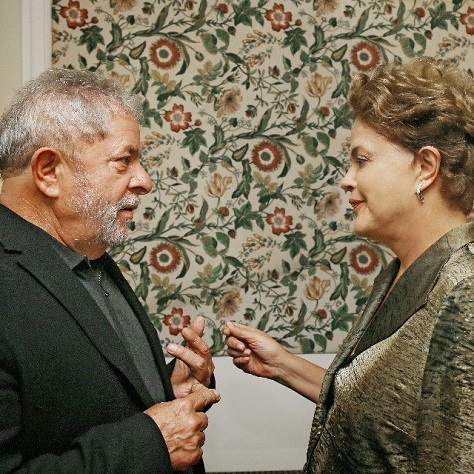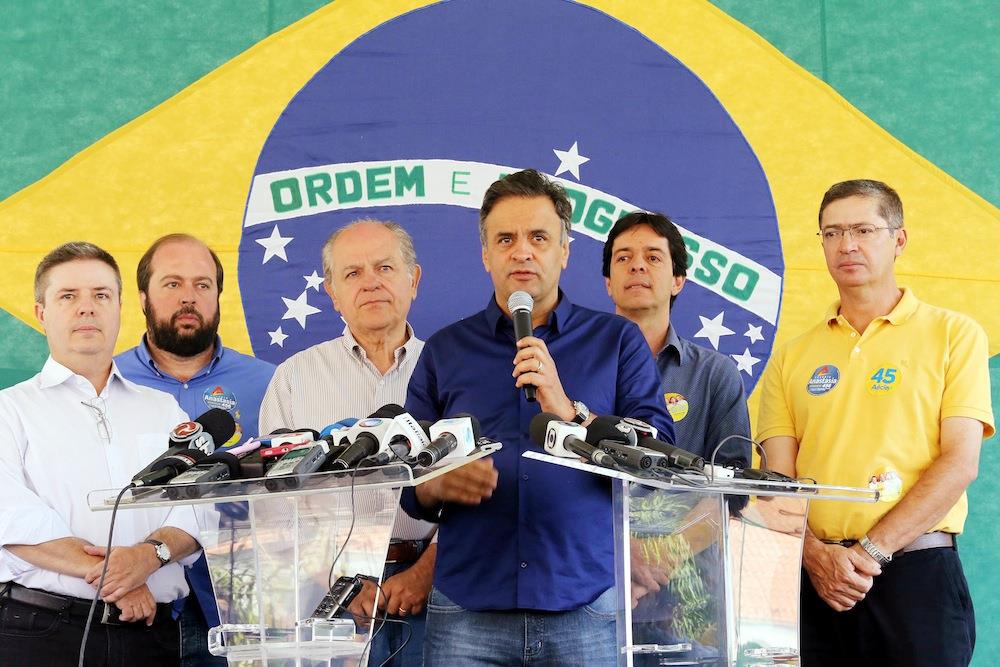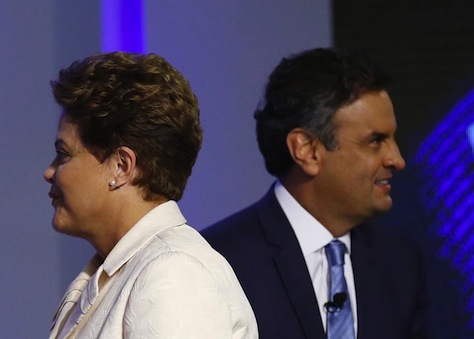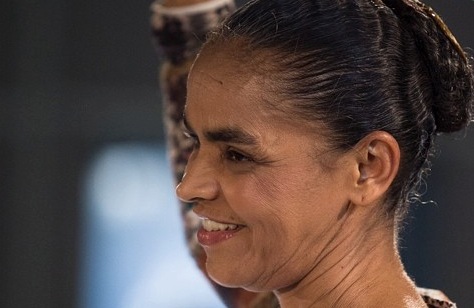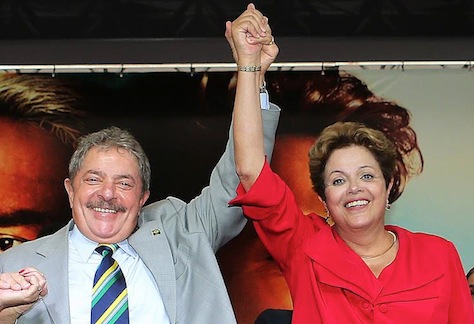Despite headlines that are raising eyebrows both in Brazil and abroad, talk of Dilma Rousseff’s impeachment is still more smoke than fire.![]()
But the risk of impeachment proceedings will only increase as the corruption scandal surrounding Petróleo Brasileiro S.A. (‘Petrobras’), the state oil company, intensifies. Though impeachment talk may be premature today, it will not be so farfetched if Rousseff is personally linked to the Petrobras kickbacks or if it’s found that illegal funds financed Rousseff’s reelection campaign last year.
Nearly two million Brazilians have now signed a petition demanding her impeachment, and rising protests throughout a handful of Brazilian cities could spread more widely — perhaps even to levels seen during the 2013 protests.
As Brazil readies to host the first-ever South American Summer Olympics in 2016, Rousseff will brace for more criticism that the country can ill afford new stadiums at a time when many Brazilians, especially in Rio de Janeiro and its largest cities, still live in poverty. The real‘s value has dropped by more than 25% in the last year, inflation is rising, GDP growth is expected to stall in 2015 and Rousseff has committed to new austerity policies to allay fears in the bond markets about Brazil’s budget. More ominously, as her approval ratings plummet, and she faces emboldened domestic opposition, Brazilians have a ready precedent in the impeachment of Fernando Collor 23 years ago.
* * * * *
RELATED: Petrobras scandal highlights 12 years of Brazilian corruption
* * * * *
Rousseff, who narrowly won reelection last October, served as Brazil’s minister for mines and energy between 2003 and 2005, when the alleged corruption abuses are said to have begun. Even if Rousseff doesn’t face formal impeachment hearings, the whiff of scandal surrounding her adds to the sense that Rousseff and her party, the Partido dos Trabalhadores (PT, Workers Party), now in its fourth consecutive term in power, have become hopelessly corrupt. That could undermine Rousseff’s efforts to accomplish much in her second presidential term, including efforts to turn around Brazil’s stumbling economy. It could also complicate any efforts by beloved former president Luiz Inácio Lula da Silva (pictured above with Rousseff) to make a comeback bid in 2018. Continue reading What are the chances of Dilma Rousseff’s impeachment?
